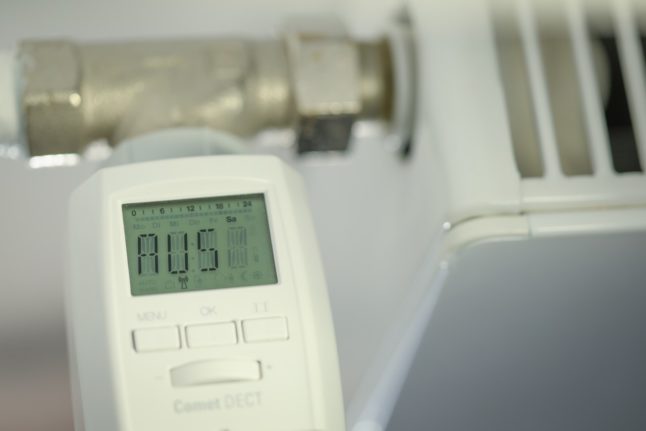If you're a homeowner in Germany, you may be wondering how the government's new Building Energy Act will affect your finances.
Nicknamed the Heating Bill, the legislation is designed to phase out gas and oil heaters between 2024 and 2045 - and the onus will largely be on owners to swap their existing heating system for a green alternative.
Fears of having to shell out for a pricey renewable heating system such as a heat pump have led to a surge in the sales of gas heaters recently. But consumer rights experts say this isn't a sensible move.
Speaking to the regional Rheinische Post recently, Ramona Pop, the CEO of the Consumer Rights Agency (VBZ) warned homeowners against rushing out to buy a brand new gas heater in the coming months.
That's because the price of gas is likely to go up significantly in the coming years as a result of the government's CO2 tax. Hikes in the tax had been paused during the cost of living crisis but are now set to rise again year-on-year.
"In 2024 alone, the price for one tonne of CO2 is to rise by 17 percent to €35," Pop explained.
Since gas heaters produce around 200g of carbon dioxide per kilowatt hour of energy, this could add a significant amount to household heating bills over time - and owners would still have to consider swapping out their heating system at some point in the future.
For example, in a two-room flat with an average use of 10,000 kilowatt hours of energy per year, bills would cost an additional €70 in 2024 alone. This would then rise as the CO2 tax goes up in subsequent years. In contrast, the cost of producing heat through renewable systems is much cheaper over time.
There's also the risk of consumers falling prey to price gouging if they rush into a purchase of a new heating system. In the past two years alone, almost all types of heating systems - including gas - have become significantly more expensive in Germany.
READ ALSO: What homeowners in Germany need to know about the new heating bill
"On average, the prices for heating systems have increased by around 25 percent in 2021 and probably even a bit more in 2022," Stefan Materne from the VBZ's energy advisory service told DPA.
In the case of gas heaters, this is even higher, with the average price of installation skyrocketing from €6,000 in 2021 to €10,000 this year.
Though part of this can be explained by increased material and energy costs, it's also due to an "overheated market", Materne explained.
Subsidies and extended deadlines for homeowners
With so many rumours swirling around the government's heating bill over the past months, most homeowners would be forgiven for being confused about what is actually being asked of them - so it's worth giving a quick overview of the latest proposals.
Firstly, the vast majority of homeowners have been given an extended deadline in the latest version of the bill - and even then, they probably won't have to swap out their heating systems straight away.
Under the terms of the bill, people with gas and oil heaters will have to replace them with a heating system run on a minimum of 65 percent renewable energy once they have broken down entirely.

Until then, they can continue to have them repaired if faults do arise.
In addition, this rule will only come into force after the local authorities have submitted their own heating plan for a city or district, which will give owners more transparency about their options. Local governments in big cities have until 2026 to do this, while municipalities have until 2028, though some authorities may manage to do this more quickly.
READ ALSO: German government scraps exemption for over-80s in controversial heating law
Until this point, new gas and oil heaters can be installed as normal - though once again, consumer experts advise against doing this.
Though some details still need to be worked out in the bill, it looks like up to 70 percent of the costs of the refit will be paid for by the government through subsidies.
This includes a 30 percent subsidy on all renewable heating systems, 20 percent for households who swap their system before the deadline and an extra 30 percent for people earning under €40,000 per year. Up to €30,000 of the cost of the new heating system will be eligible for government subsidies.
READ ALSO: German government to subsidise up to €30,000 of heating revamp costs

Comments